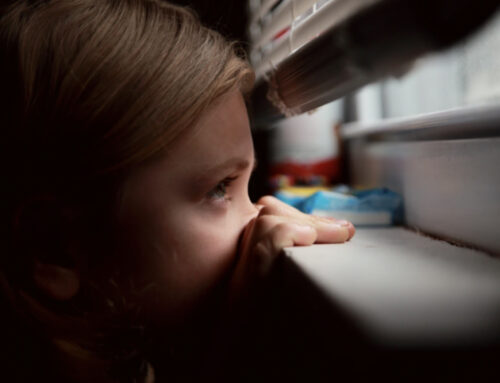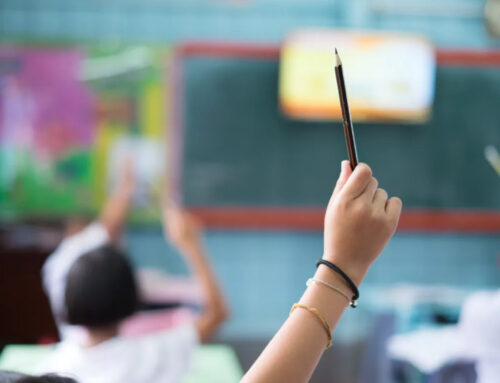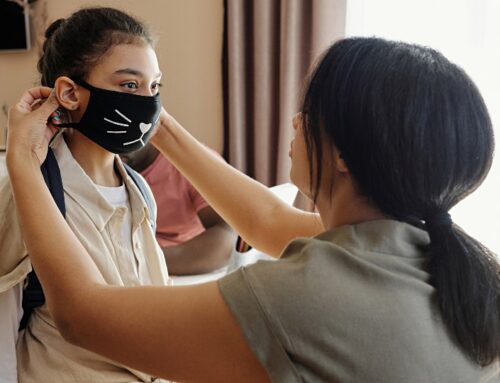
Read the complete article here.
Views
1. There’s help for kids and parents struggling during COVID-19
The number of calls to Kids Help Phone has more than doubled during the Covid-19 crisis.
One of the resources kids are using more during the COVID-19 crisis is Kids Help Phone (1-800-668-6868).
On Tuesday, I spoke with Kathy Hay, president and CEO, who says in 2019, before the COVID-19 crisis, they received 1.9 million calls from kids and youth up to 26 years of age. When social distancing measures began, that number doubled in a week. Since then, the number has doubled again. “The need is huge,” Hay says.
But the texts weren’t coming just from kids and youth. Hay says calls from those in their 30s, 40s, and 50s are up 10%.
This week, Kids Help Phone announced it was partnering with Crisis Text Line so that any Canadian, of any age, who is working on the frontlines or as an essential worker can text if they want to talk. You can text SHARE to 741741.
Across the country, Hay says, kids are asking COVID-19-related questions like, “Will I get sick?” “What if my parents get sick?” “Who will take care of me if my parents get sick?”
Kids do worry about their parents as much as they worry about themselves.
Hay says in Nova Scotia, 30% to 50% of the calls from kids are questions related to Covid-19. Other issues kids are talking about include anxiety and stress, relationship issues, depression, isolation, and abuse.
Hay adds they are still getting the calls from those who are in crisis, struggling with depression, or at risk of suicide. These crisis represent about 20% of their calls. The COVID-19 crisis has amplified those issues for many. For those who call and text and are in crisis, the wait time is 40 seconds. It’s less than five minutes for other calls.
Hay says Kids Help Phone started planning its response to COVID-19 back in February. The staff researchers and librarians were doing ongoing research on the contagion, getting information to answer questions from kids. Staff and counsellors are updated every day. About two months ago, Hay says they started to work on a plan to have phone counselors work from home.
That way we wouldn’t have to shut down and we’d have business continuity.
Like many workers who are now doing their jobs from home, Hay says the phone counsellors may also have to balance parenting with work, finding a private and quiet space where they can take calls. Hay says she reminds staff to practice self-care, too.
It’s not that they’re not used to that. It’s that the world is in crisis, so that impacts our people.
Hay says any Canadian who needs help should reach out.
No issue is small enough or big enough. These are incredible times. You can’t do this alone. Parents should know they don’t have to parent alone in this.
Experts says parents who need help during Covid-19, should reach out to other parents or text resources like Crisis Text Line.
I see a lot of parents on my own social media talking about the challenges they’re facing now, trying to balance working from home or the stress of having lost their jobs with keeping their kids occupied and up-to-date on school assignments now coming their way.
A few parents I know shared this article, The Parents Are Not All Right, from Chloe I. Clooney at Medium.
Clooney talks about her own struggles to balance life at her home and how she’s hearing the same from other parents:
What’s amazing to me is how consistent this struggle is among every parent I talk to. The texts and social media posts bouncing around my circle all echo each other. We feel like we’re failing at both. Our kids don’t just need us — they need more of us. Our kids are acting out, abandoning the routines they already had, dropping naps, sleeping less, doing less — except for jumping on top of their parents, which is happening much more. We’re letting them watch far greater amounts of screen time than we ever thought we’d tolerate. Forget homeschooling success — most of us are struggling to get our kids to do the basics that would have accounted for a Saturday-morning routine before this pandemic.
Kiran Pure is a psychologist in Dartmouth who works with kids and parents. She says she’s hearing some of the same issues during her sessions, all of which now are taking place through telehealth (on the phone or through Zoom meetings), although she says not every client wants to have sessions over the phone or online (Pure says about 40 per cent of clients didn’t want to take virtual counselling).
Pure says she did her research on COVID-19 so she’d know how to answer the questions from the kids. Turns out, they were okay.
I’m impressed with the fact a lot of kids know about COVID-19.
Pure says what kids are worried about most are their parents and grandparents. She says the kids she works with are keeping in touch with grandparents through video chats and making and sending them cards and letters. Some of the kids have grandparents who live overseas, including in Italy.
Kids are most worried because they are cut off from friends and school right now.
That is the biggest concern for them now. Many kids feel lonely or socially isolated.
Pure says it’s a bit easier for teenagers because they are more sophisticated with technology and can keep in touch with their friends online. But she says it’s the kids between the ages of seven and 11 who struggle the most because those kids should really limit their access to technology and social media. These are the kids, too, who are used to running around at recess, walking home with their friends, or playing games in their neighbourhoods.
Pure says she suggests parents arrange online play dates for those kids. Playing Lego or even having lunch together through video chats. Pure says she usually recommends very limited screen time for kids in this age range, but knows these are different times for families.
I say do what you normally do, but be a little more relaxed, as long as it’s social connection.
Pure says the parents she’s working with fall into one of three categories: those who are working from home; those working in essential services; and those who have been laid off. All of those scenarios present a different set of worries for the kids of those workers. Kids of essential workers worry about their parents’ safety. Kids of laid off workers worry about the finances at home.
I see that group of parents really struggle because their whole future is questionable in their minds.
And kids of those parents working from home struggle with finding a routine. She says parents now are trying to be strong for their children.
I can see through the telehealth how parents look diminished.
Pure says when she works with parents, she tries to tell them we are all in the same situation and suggests they work on factors they can control. She says those little things parents can control include going for a walk, making breakfast, making a bit of a plan for the day, try to have a routine, and don’t stay in your pajamas all day.
You don’t want to get into that downward spiral.
She suggests parents create an online network of parents they can connect with every couple of days and focus on your physical and mental health. Still, she also recommends parents stay informed, but also control how much social media and TV news they take in. If you’re feeling anxious, turn it off.
Pure says while there are lots of resources and activities online for parents to use to entertain their kids, parents shouldn’t worry about doing extras right now. She says the pressure is even greater for those parents whose children may need extra help with school work. Not all kids can work independently and parents don’t always understand the expectations from teachers.
Some people can handle it, but for others it’s too much. You may not be able to keep up with the Joneses, so to speak. Don’t let Pinterest tell you what kind of mom you’re going to be. These are not normal times. Don’t try for perfection.
I genuinely believe everyone is doing the best they can.
Post-secondary students in Nova Scotia can try Good2Talk Nova Scotia — free, confidential support just for them. Service is available 24/7/365. Text GOOD2TALKNS to 686868 or call 1-833-292-3698.





